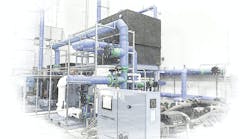The Second Circuit Court of Appeals has ruled that the Natural Resources Defense Council (NRDC) could pursue legal action against the Food and Drug Administration (FDA), trying to force the agency to finalize its regulation of triclosan, a chemical used in over-the-counter antiseptic antimicrobial soap, in toys and other consumer products, it was announced.
The ruling reversed a previous decision by the district court from 2011 which found that the NRDC did not have a standing to sue the FDA over triclosan. The three-panel jury, consisting of Circuit Judges Rosemary Pooler and Gerard Lynch and designated District Court Judge Brian Cogan of the Eastern District of New York, decided that the NRDC had adequately proved that triclosan is potentially dangerous, while the FDA had failed to complete a review of the chemical even though it had evidence from decades of research.
The NRDC has been pressing for a review on triclosan for years, after it found links between the use of the chemical and damage to the endocrine system. There were also suspicions that triclosan increased antibiotic resistance. In 2010, the FDA was asked to ban the chemical, following research that found traces of triclosan in surface water in the United States.
However, suspicions of the potentially harmful effect of triclosan and similar chemicals can be traced back to the late 1970s, when the FDA first expressed doubts on their use. Tentative reviews on the matter were released between that point and the end of the 20th century, but the reviews were never finalized and a conclusion had not been reached.
RELATED: FDA requests higher budget for 2014
The Second Circuit Court of Appeals sent the case back to the district court, writing that the evidence gathered by the NRDC suggested that triclosan can be dangerous. Meanwhile, the FDA has been unable to prove otherwise but still has taken no measures to prevent the chemical from being marketed and to ensure its safety. However, the panel ruled that the NRDC did not have a standing to compel the FDA to review triclocarban, a similar chemical, because the group could not prove that exposure to it could be dangerous, Reuters reported.
NRDC attorney Mae Wu stated that the group would ask the district court to fix a firm deadline by which the FDA has to complete its triclosan review. The agency has shown that it would not do what it is supposed to do, unless it is given a legislative or court-ordered mandate, she commented. The FDA declined to comment but a spokeswoman for the agency said in a statement that the regulator was "engaged in a scientific and regulatory review of triclosan."
Meanwhile, triclosan has been the center of attention across the Atlantic, where investigations are being carried out in Denmark and the Netherlands under the Community Rolling Action Plan, over the use of the chemical over suspicions that it could be an endocrine disruptor, with potentially toxic and bioaccumulative properties.



